Longtime educator Jimmy Baker appointed chancellor of Alabama’s community college system
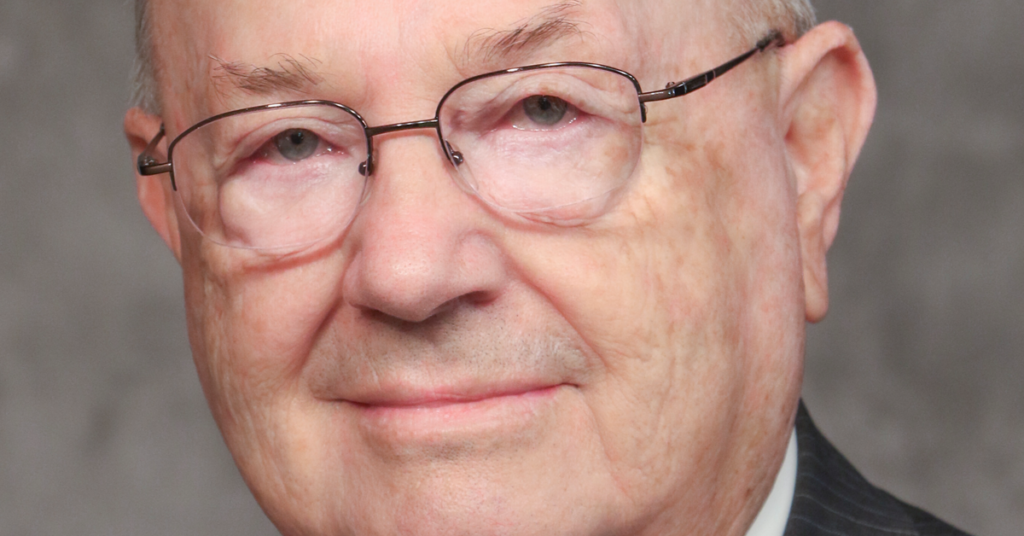
The Alabama Community College System board of trustees voted Wednesday to appoint interim chancellor Jimmy H. Baker as the official chancellor, effective April 1. “As we searched for a permanent replacement, we realized we could never find a chancellor who would be more experienced or prepared than Jimmy Baker,” board vice president Al Thompson said. Baker, who has served as acting chancellor for more than six months, will replace Mark Heinrich who officially submit his resignation last month following a long-term illness kept him away from the job. “Jimmy Baker has done a tremendous job of leading the system during the chancellor’s absence and has been far more than a place-holder,” Thompson added. Baker began his K-12 education career as a teacher and coach at Daleville High School. He quickly moved up in the ranks in education administration, first being named superintendent in Daleville, later becoming superintendent for Coffee County, and then assistant superintendent for finance at the state Department of Education. Baker served as state finance director from 1995 to 1999 under former Gov. Fob James. Baker has a wide array of experience, with responsibilities that have included: that included purchasing, contracting, information technology, insurance and bonds, overseeing budgets and financial reports for the state education office, local school systems and the community college system. Baker was one of seven applicants the board reviewed for the position. “Jimmy Baker understands the important work of community colleges from virtually every angle – from administering the schools and teaching the students, to hiring them when they graduate,” said Milton Davis, a member of the board of trustees who chaired the personnel committee that led the chancellor search. “He brings a unique perspective, and he knows that ultimately the work of our community colleges is about ensuring the success of our students, the success of our businesses, and the success of our state. Baker became chief of staff at the community college system in January 2016 and was named acting chancellor in August, after Heinrich developed severe complications from shingles. “I am honored to be in this position,” Baker said in a news release. “Alabama has no greater asset than its community college system, and we are uniquely positioned to ensure our students have the skills they need to meet their goals. While we will continually adapt and upgrade our programs, our basic mission remains the same. We want to provide our students opportunities for success, whether they want to work toward a four-year degree, to get a good job, or to upgrade their skills.”
Lone lawmaker crusades against the death penalty in Alabama
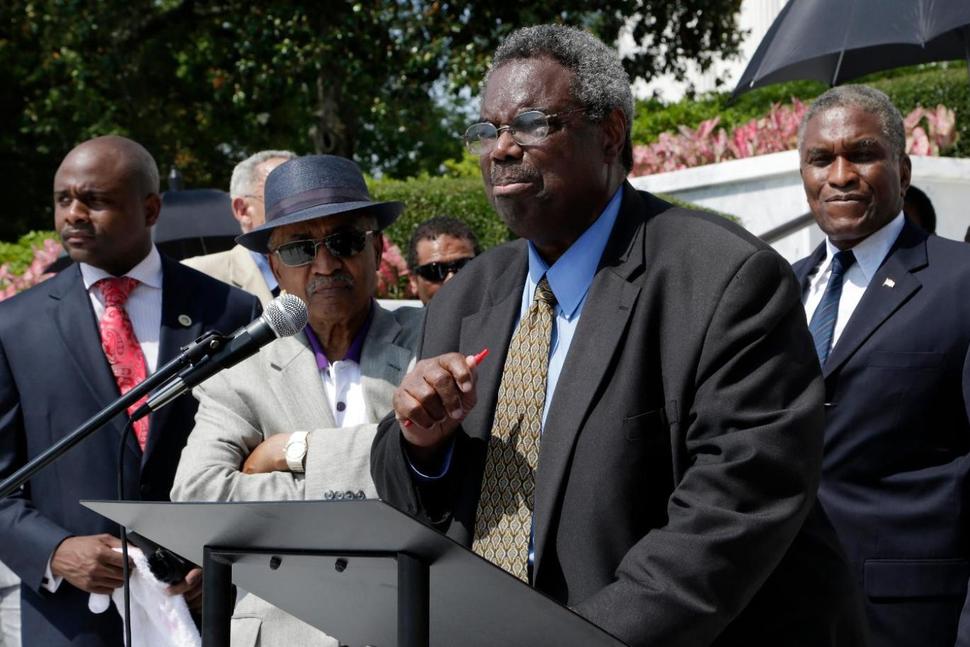
Hank Sanders closed his eyes, pressed his hand to his forehead and tried to recall the first time he petitioned the state of Alabama to abolish the death penalty. Was it 2000? Or maybe 1998, shortly after the American Bar Association called for a moratorium on capital punishment? The 74-year-old senator from Selma couldn’t say for sure, so he asked his secretary to dig into the files. For nearly two decades, Sanders has introduced bills to end Alabama’s ability to take a person’s life — an unsuccessful endeavor in a state that has defied national trends away from capital punishment and still houses one of the country’s largest death row populations. Sanders is undeterred, arguing that the death penalty unfairly targets poor African-Americans. Again this year, as he has since 2000, he put forward legislation to stop executions in the Deep South state. “You don’t fight whether you’ll win or not,” Sanders said in his Montgomery statehouse office. “You fight based on whether you think your position is right.” If past years are an indication, his legislation will again die in committee. Years ago, Sanders thought he could win support for a three-year pause on executions. When that failed for 12 straight years, he began calling for a full repeal. “It’s a lonely fight,” said Sanders, a Democrat in the state Senate since 1983. An Alabama native, he grew up in a three-room house, the second of 13 children in a rural town during the racial segregation of Jim Crow. The African-American lawmaker has dedicated much of his career to civil rights. He organized voter registration drives and walked in 1965 with Dr. Martin Luther King Jr. in the Selma-to-Montgomery march that preceded the Voting Rights Act. The private law firm he co-founded doggedly pursued civil rights cases and won more than $1 billion for black farmers who alleged discrimination by the U.S. Department of Agriculture. Sanders said opposing capital punishment is yet another attempt to bring justice to Alabama. “It’s an extension of my fight for civil rights,” he said. Alabama’s 183 death row inmates make that the fourth largest U.S. grouping of prisoners awaiting execution. More than half are black, though African-Americans make up about a quarter of the state’s population. People who study capital punishment say its more frequent application to minorities is linked to racial prejudice. “It is inseparable of historical discussion of race, slavery, lynching, Jim Crow,” said Robert Dunham, executive director of the nonprofit Death Penalty Information Center, which opposes capital punishment. Nationally, the number of yearly executions has dropped dramatically over a quarter century, partly due to difficulty securing lethal injection drugs and waning public support, according to the center. Last year, 20 inmates were put to death, the lowest figure since 1991. Annual death sentencing rates are also down nearly 90 percent since 2000. Thirty-one states still allow capital punishment, but 10 states account for about 80 percent of the country’s total death row population. California, with the largest death row population by far at 749 inmates, has executed only 13 prisoners since 1976, figures from the Death Penalty Information Center show. Alabama has used capital punishment 58 times over the same period. Sanders said the drop in executions is positive, but he holds out hope for a U.S. Supreme Court ruling outlawing the punishment. Death penalty advocates say it deters crime and is less costly than life imprisonment. Both sides bicker over conflicting studies on whether it depresses homicide rates. “At the end of the day, whether you go with Timothy McVeigh or Dylann Roof, the only way you’re going to deter people from committing those heinous acts is to have a death penalty,” said Republican state Sen. Trip Pittman. He referred to McVeigh, the Oklahoma City bomber executed in 2001, and Roof, recently sentenced to die for a South Carolina church shooting massacre. People personally affected by vicious crimes said Sanders’ attempts to repeal the only punishment that will bring them closure are doing justice a disservice. “I don’t understand why people have all this compassion for these people on death row,” said Janette Grantham, executive director of the advocacy group Victims of Crime and Leniency. Her brother, a county sheriff, was murdered in 1979 by a man later handed a life sentence. Sanders’ efforts would make sense in a perfect world, she said, but “it’s not a fantasy world to me to want fairness and justice.” Though Sanders’ crusade has never gotten far, he insists many lawmakers quietly agree capital punishment should be ended but fear losing votes: “There have been other politicians who have said to me, privately, ‘You’re right, but I can’t touch that.’” Republished with permission of The Associated Press
Luther Strange joins effort to kill the death tax
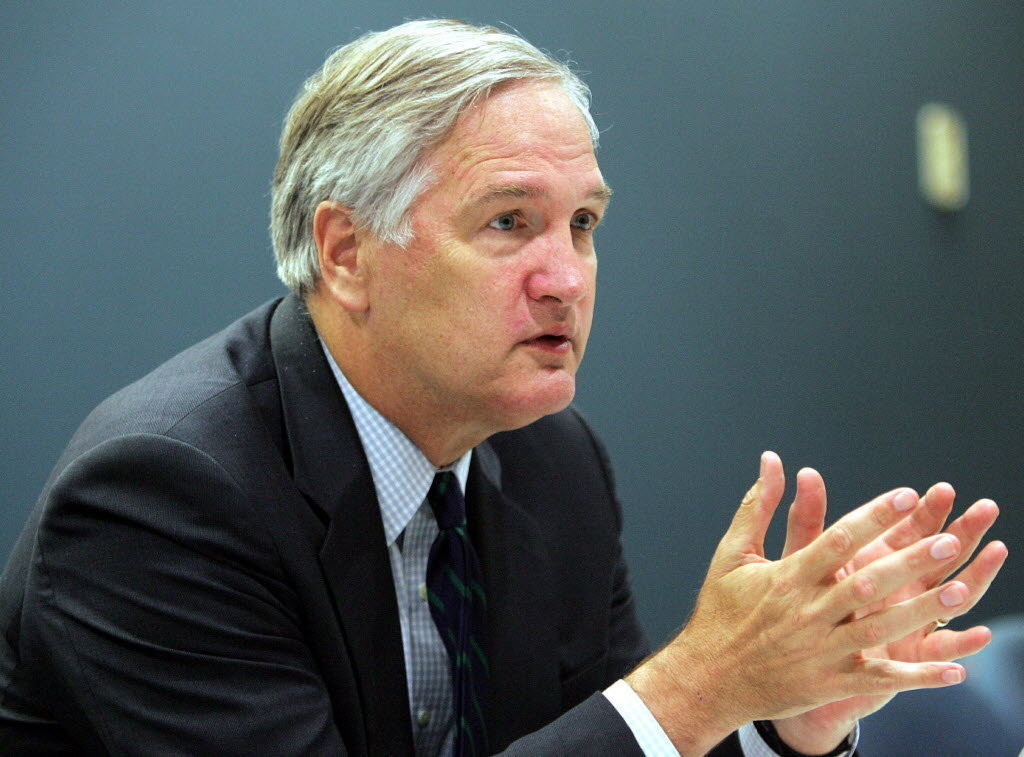
Even though S.205: the Death Tax Repeal Act of 2017 was introduced in the U.S. Senate before Alabama’s newest U.S. Sen. Luther Strange had even been sworn in, the Yellowhammer State’s junior senator made it a priority to become a co-sponsor. Strange joined 33 of his new Senate colleagues when he signed on to the bill, which would permanently repeal the federal estate tax, more commonly known as the death tax, on Wednesday. “When Alabama’s growers and producers are successful, our entire state’s economy can thrive,” said Strange. “For too long, farms across the state have dealt with the undue burden of the death tax, often struggling to keep their land in the family. By repealing the tax, we will unleash the full potential of multigenerational family businesses. I am proud to join over thirty of my Senate colleagues as we work to push this commonsense bill across the finish line.” Introduced by South Dakota-Republican Senator John Thune, the bill would also repeal the generation-skipping transfer tax. Both provisions of the bill would provide relief to farming families across Alabama, who currently endure disproportionate taxation on the value of the inherited land when it passes from one generation to the next
Paul Ryan stresses Donald Trump had a hand in GOP health care bill
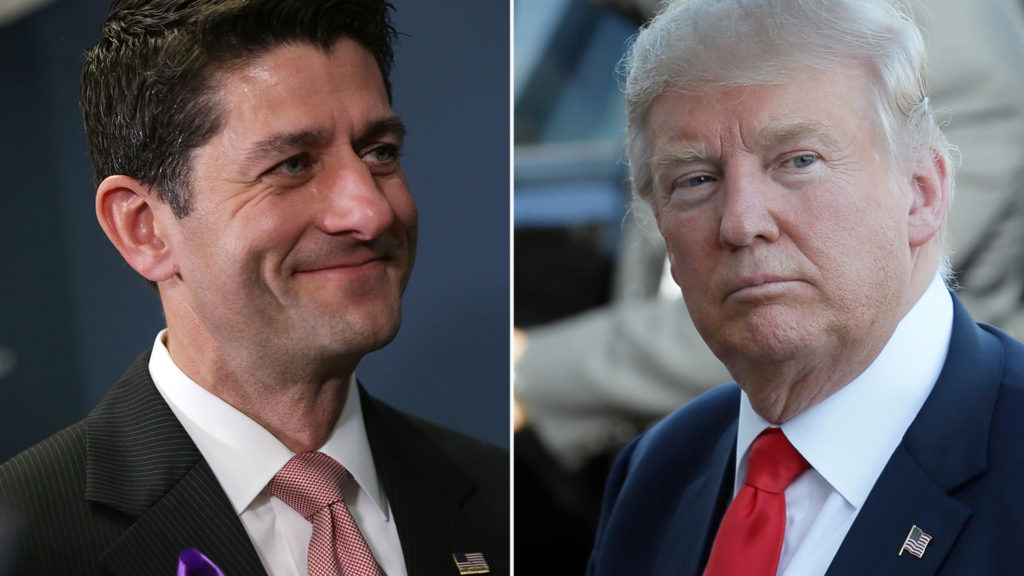
House Speaker Paul Ryan is stressing that President Donald Trump had a hand in writing the beleaguered health care overhaul that Republican leaders hope to push through his chamber next week. The Wisconsin Republican says there is room for “improvements and refinements.” But he says its major components will stay “intact” because the measure’s House GOP authors wrote it with Trump and Senate Republicans. Ryan’s comments Wednesday come as GOP leaders struggle to dampen internal opposition to the measure. Party leaders hope Trump’s support will help them nail down votes. Conservatives say the bill is an incomplete repeal of former President Barack Obama’s 2010 overhaul. Moderates think it will push too many constituents off coverage. Ryan spoke on the Fox Business Network. Republished with permission of The Associated Press.
Donald Trump blasts release of 2005 tax form, reporter’s account
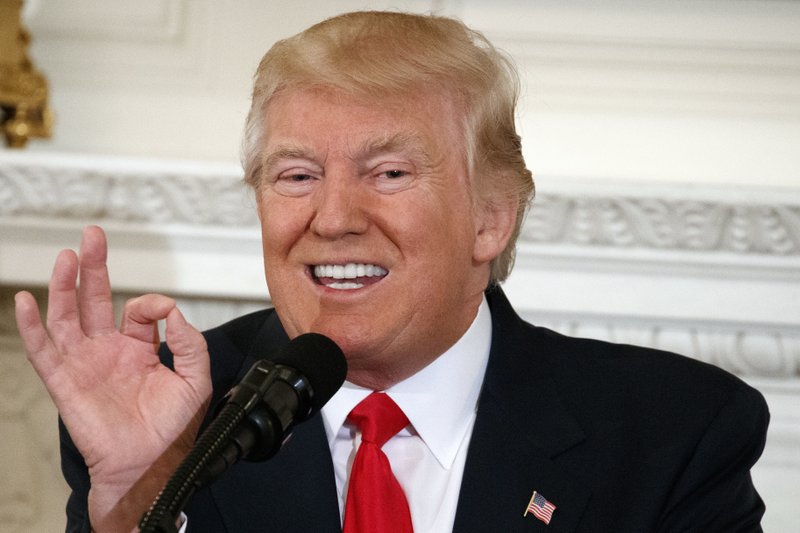
President Donald Trump earned $153 million and paid $36.5 million in income taxes in 2005, paying a roughly 25 percent effective tax rate thanks to a tax he has since sought to eliminate, according to newly disclosed tax documents. The pages from Trump’s federal tax return show the real estate mogul also reported a business loss of $103 million that year, although the documents don’t provide detail. The forms show that Trump paid an effective tax rate of 24.5 percent, a figure well above the roughly 10 percent the average American taxpayer forks over each year, but below the 27.4 percent that taxpayers earning 1 million dollars a year average were paying at the time, according to data from the Congressional Joint Committee on Taxation. The tax form was obtained by Pulitzer prize-winning journalist David Cay Johnston, who runs the website DCReport.org, and reported on MSNBC’s “The Rachel Maddow Show.” Johnston, who has long reported on tax issues, said he received the documents in the mail, unsolicited. Trump took to Twitter early Wednesday to cast doubt on Johnston’s account. “Does anybody really believe that a reporter, who nobody ever heard of, ‘went to his mailbox’ and found my tax returns? @NBCNews FAKE NEWS!” Johnston, speaking to ABC’s “Good Morning America” Wednesday, said it’s entirely possible that he received the returns from Trump himself or someone close to him, saying, “Donald has a long history of leaking things about himself.” He noted that the real question remains the sources of Trump’s income, saying Trump doesn’t want us to know “who he’s beholden to.” Trump’s hefty business loss appears to be a continued benefit from his use of a tax loophole in the 1990s, which allowed him to deduct previous losses in future years. In 1995, Trump reported a loss of more than $900 million, largely as a result of financial turmoil at his casinos. Tax records obtained by The New York Times last year showed the losses were so large they could have allowed Trump to avoid paying taxes for up to 18 years. But Trump’s 2005 filing shows that another tax prevented him from realizing the full benefit of those deductions. The bulk of Trump’s tax bill that year was due to the Alternative Minimum Tax, a tax aimed at preventing high-income earners from paying minimal taxes. The AMT requires many taxpayers to calculate their taxes twice — once under the rules for regular income tax and then again under AMT — and then pay the higher amount. Critics say the tax has ensnared more middle-class people than intended, raising what they owe the federal government each year. Were it not for the AMT, Trump would have avoided all but a few million dollars of his 2005 tax bill. Trump’s campaign website called for the end of the AMT, which is expected to bring in more than $350 billion in revenues from 2016 to 2025. As a candidate and as president, Trump has refused to release his tax returns, breaking a decades-long tradition. Although he initially promised to do so, he later claimed he was under audit by the Internal Revenue Service and said his attorneys had advised against it — though experts and IRS officials said such audits don’t bar taxpayers from releasing their returns. The White House pushed back even before the release of the documents Tuesday night, saying that publishing the information was illegal. “You know you are desperate for ratings when you are willing to violate the law to push a story about two pages of tax returns from over a decade ago,” the White House said in a statement issued on condition that it be attributed to an anonymous official, although the president has decried the use of anonymous sources. The unauthorized release or publishing of federal tax returns is a criminal offense, punishable by a fine of up to $5,000 and up to five years in jail. But Maddow argued that MSNBC was exercising its First Amendment right to publish information in the public interest. Trump long insisted the American public wasn’t interested in his returns and said little could be learned from them. But Trump’s full returns would contain key details about things like his charitable giving, his income sources, the type of deductions he claimed, how much he earned from his assets and what strategies Trump used to reduce his tax bill. The issue was a major point of attack from his election rival Hillary Clinton, who suggested Trump had something to hide. The White House has not said whether the president plans to release his returns while he’s in office. More than 1 million people have signed a White House petition urging the president to release them. Republished with permission of The Associated Press
Donald Trump adviser: Secret warrant may have caught hacker contact
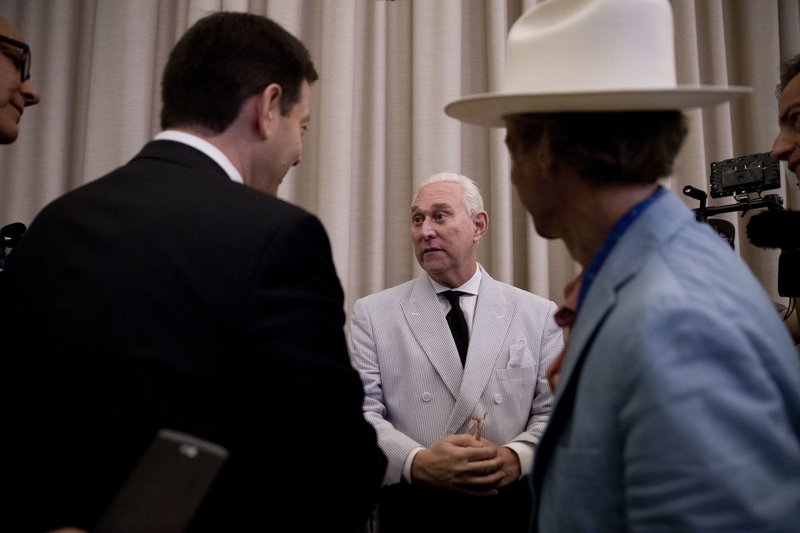
Longtime Trump adviser Roger Stone says he believes his contacts with a Russian-linked hacker who took credit for breaching the Democratic National Committee may have been obtained through a FISA warrant, which allows the government to collect the communications of individuals suspected of being agents of a foreign power. Stone is among a handful of President Donald Trump‘s associates who are under scrutiny for possible links to Russia during the presidential race. In a statement to The Associated Press, Stone said he’s retained two attorneys to explore whether he can compel the government to “either charge me or admit they have no case whatsoever.” The Republican operative has acknowledged having a Twitter exchange with Guccifer 2.0, a hacker that U.S. officials believe has ties to Russia. Stone said he was “unaware at the time of the brief exchange of allegations that the hacker in question is suspected of being a Russian asset.” “I have no relationship with the Russian state, Russian Intelligence or any other Russians,” said Stone, who split with Trump’s campaign in August 2015 but remains in touch with the president. Stone’s messages with Guccifer 2.0 were first reported by the website The Smoking Gun. He said the story contains information that “could only be learned by surveillance of my domain and eavesdropping on my e-mail, phone calls and texts.” “If these where obtained through a FISA warrant as I believe and the information was leaked to the Smoking Gun, that would constitute a felony,” Stone said. He also suggested, without evidence, the government had Trump under surveillance during the presidential campaign. Trump has accused former President Barack Obama of wiretapping the New York skyscraper where he lived and ran his campaign, though he has provided no evidence to support his explosive allegation. On Monday, the White House started softening Trump’s claims, with spokesman Sean Spicer saying the president was referring to general surveillance that may have been approved by the Obama administration. The FBI, as well as House and Senate committees, are investigating Russia’s interference in the 2016 election and possible contacts between Trump associates and Russians. Trump has asked the congressional committees also to investigate his wiretapping allegations, though the Justice Department missed a Monday deadline to provide evidence to the House committee. Sen. Lindsey Graham, R-S.C., says he’s waiting to hear from FBI Director James Comey whether a warrant was issued that would have allowed the Obama administration to tap Trump’s phones during the campaign. Graham says he asked Comey to answer by Wednesday and also to say whether the FBI is investigating Russian interference in the 2016 campaign. If Comey doesn’t comply, Graham says Congress “is going to flex its muscle.” “We’ll issue a subpoena to get the information, we’ll hold up the deputy attorney general’s nomination until Congress is provided with the information to finally clear the air as to whether there was ever a warrant issued against the Trump campaign,” Graham, who heads the Judiciary Committee’s crime and terrorism subcommittee, said Wednesday on NBC’s “Today” show. Republican Sen. John McCain has singled out Stone as a Trump associate who should answer questions about his ties to Russia. The Arizona lawmaker suggested in an interview Sunday with CNN that Stone may have ties to ousted Ukrainian President Viktor Yanukovych. Stone denied any connection to Yanukovych or his political party. Stone said he did work for a “small pro-Western splinter party” of Ukrainian politician Volydmyr Litwin, calling the effort to help win seats in parliament a “low budget operation.” Stone said he is willing to testify in any Senate hearings that occur “in public and not behind closed doors.” He’s retained former U.S. Attorney Kendall Coffey and South Florida lawyer Grant Smith to represent him. Last year, Coffey represented Trump campaign manager Corey Lewandowski when he was charged with simple battery after an altercation with a female reporter. The prosecutor later dropped the charges. Republished with permission of The Associated Press.
Alabama ranks 2017’s 10th most dependent state on the gun industry

Gun sales have been on the decline since President Donald Trump took office. While some may welcome the news, it’s a bad sign for the Yellowhammer State’s economy as the personal-finance website WalletHub just determined the state is the the 10th most dependent in the U.S. on the firearms industry. In an in-depth analysis of 2017’s States Most Dependent on the Gun Industry, WalletHub’s analysts compared the economic impact of guns on each of the 50 states and the District of Columbia to determine which among them leans most heavily on the gun business both directly for jobs and political contributions and indirectly through ownership. They examined states on a number of gun-related factors, including firearms industry activity in the state, gun ownership and overall prevalence, and contributions by gun control and gun rights groups to elected officials. WalletHub found Alabama has a very strong relationship with the gun industry. Many jobs are tied to the industry and not so surprisingly the state ranks #1 in terms of making the most political donations to Members of Congress where gun-control is concerned. Alabama’s dependence on the gun industry (1=most dependent; 25=avg.) 8th: Gun ownership rate 19th: Firearms-industry jobs per capita 19th: Total firearms-industry output per capita 12th: Total taxes paid by firearms industry per capita 7th: NICS background checks per capita 1st: Gun-control contributions to Congressional members per capita 16th: Gun-rights contributions to Congressional members per capita Here’s a look how Alabama compares to the of the country (roll over states to see their ranks): Source: WalletHub Alaska is the state that depends most on the gun industry with Wyoming, Montana, South Dakota and Idaho rounding out the top five.
After hours of debate, Alabama House approves General Fund budget

The Alabama House of Representatives approved a $1.8 billion state budget after nearly four hours of debate over a proposed pay raise for state employees, who haven not had a cost-of-living increase since 2008. Lawmakers voted 72-28 for the budget late Tuesday, which keeps $97 million – roughly 5 percent of the total budget – in reserve for future needs after the BP oil spill settlement money is gone. The proposed pay raise for state employees would have cost the state an additional $19 million a year, which conservative lawmakers said was too high a price to pay for the cash-strapped state. Many Democrats adamantly disagreed, saying it was unfair to punish the workers for the state’s budgetary woes. “That’s unconscionable to think that people would work that long and not get a raise,” Democratic state Rep. John Knight said from the House floor during debate. The bill now moves to the state Senate. If passed, the spending plan will go into effect Oct. 1 and provide level funding to most state agencies.
US envoy makes 1st Asia trip as anxiety rises over North Korea
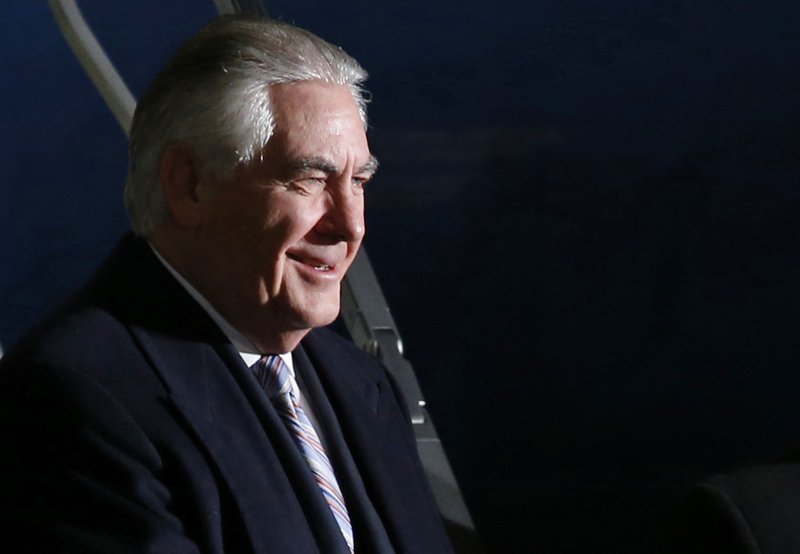
U.S. Secretary of State Rex Tillerson on Wednesday began a three-nation tour of Asia where anxiety is rising over North Korea’s nuclear and missile programs, along with questions over how the Trump administration will tackle one of its sternest national security challenges. Tillerson flew to his first stop in Japan as the U.S., Japanese and South Korea navies conducted missile defense information-sharing drills in the region. Uncertainty remains, however, over how the U.S. administration intends to pressure or persuade North Korea to give up its nuclear weapons that also pose an emerging threat to the United States itself. Tillerson is to meet with Japanese Prime Minister Shinzo Abe and Foreign Minister Fumio Kishida on Thursday. He will also travel to South Korea, which is gripped by domestic political turmoil after the ouster of its president, and then to China, which is conflicted about how to treat North Korea, its traditional ally, for fear of triggering its collapse. Adding to the combustible mix of military tension and the region’s historic rivalries is another factor — confusion about U.S. foreign policy under the Trump administration. The former Exxon Mobil CEO has adopted a low profile during his six weeks as secretary of state. The State Department Correspondents’ Association expressed disappointment Wednesday that Tillerson was traveling to Asia without a full contingent of the diplomatic press corps or even a pool reporter on his plane — although he did take a reporter from the conservative-leaning website the Independent Journal Review. President Donald Trump‘s rise to power has raised anxiety in Asian capitals. During last year’s election campaign, Trump asked whether allies like Japan and South Korea contribute enough for their own defense or should get their own nuclear weapons. He also questioned the fundamentals of four decades of U.S. diplomacy with China. Trump has allayed some of those concerns since taking office. He hosted Abe at his Florida resort last month, and when Tillerson goes to Beijing on Saturday, the secretary of state is expected to arrange a much-anticipated visit by Chinese President Xi Jinping to the U.S. “The U.S. allies, Japan and South Korea, want to know that the United States is going to continue to defend them but also is going to show a certain amount of finesse and diplomatic skills in dealing with China and with North Korea,” said Robert Dujarric, director of the Institute of Contemporary Asian Studies at Temple University’s campus in Tokyo. North Korea will be a top priority on all Tillerson’s stops. The State Department says Tillerson wants to discuss “fresh” approaches. Administration officials say all options are on the table, including military ones, but signs are that the U.S. for starters wants to see rigorous implementation of existing sanctions against the North. As under the Obama administration, there appears to be little desire for now to negotiate with North Korea, unless it commits to denuclearization, which it shows no sign of doing. North Korea conducted two nuclear tests and 24 ballistic missile tests last year, deepening concern in Washington that it could soon develop a nuclear-tipped missile capable of reaching the U.S. mainland — something Trump has vowed won’t happen. The U.S. is currently involved in annual military drills in South Korea that North Korea regards as a rehearsal for invasion. In a show of defiance, North Korea fired four ballistic missiles into the ocean off Japan last week. The next day, the U.S. began bringing in equipment for the long-planned deployment in South Korea of a missile defense system known by its acronym, THAAD. That has raised tensions with China, which says the THAAD’s radar could peer into Chinese territory, weakening its own nuclear deterrent. The U.S. says the system is intended to be used only against North Korea. That adds to the long list of sharp differences between Washington and Beijing on issues like their trade imbalance and the militarization of the South China Sea. After Tokyo, Tillerson visits South Korea, caught up in political upheaval after last week’s ouster of its president, Park Geun-hye, over a corruption scandal. Park had been in lockstep with Washington’s efforts to isolate North Korea. The favorite to succeed her is Moon Jae-in, a moderate who wants to engage North Korea’s government. Tillerson’s final leg involves meetings with several senior Chinese officials in Beijing. China recently announced it was suspending for the rest of the year coal imports that are an important source of revenue for North Korea. That is to comply with U.N. sanctions aimed at restricting the North’s nuclear and ballistic missile programs. Chinese Premier Li Keqiang on Wednesday called for all parties to return to talks. Aid-for-disarmament negotiations have been stalled for years. Last week China’s foreign minister warned that the U.S., South Korea and North Korea could be heading for conflict. Republished with permission of The Associated Press.
Steve Flowers: Bringing Alabama sales tax into 21st-century

My tradition for over two decades has been to give my children money for Christmas. Under this system, there is no returning of items. They get what they want or need. There is no way that I would know what style of clothing, color or size they like. It works well. The most illuminating thing that occurred to me this year is that both of my daughters and my granddaughter bought all their Christmas gifts from me online. Without question, our country and state have changed dramatically technologically in my lifetime. Therefore, Alabama and other states have to change the way that sales tax is collected. States have to find a solution and the will to derive sales tax from online purchases. The legislature has wisely set up a budget reform task force to study, evaluate and come forward with long-term solutions to problems and loopholes in the law like online sales tax. The committee is headed by two stellar legislators, Sen. Clyde Chambliss (R-Prattville) and Rep. Danny Garrett (R-Trussville). This blue-ribbon panel will review and develop recommendations as to how Alabama can adjust to 21st-century budgeting. This non-collection of sales tax on online purchases is a serious problem and it perfectly illustrates how our tax system is more designed for the 20th century than the 21st. We, like many other states, are not keeping up with the technology shifts in the world. Legislators unquestionably have to re-evaluate the state’s tax structure to reflect the new online and digital economy. Rep. Garrett has wisely acknowledged, “We used to tax about two-thirds of the economy with the sales tax. Today, we tax one-third of our economy.” He further observed, “We are leaning very heavily on the income tax, and our sales tax base is eroding due to online sales.” Another issue, which will be discussed during this legislative session, is the deterioration of our transportation system in the state. This problem is not unique to Alabama. In fact, President Trump made this a hallmark issue of his campaign last year. Most Washington political observers fully expect to see a massive infrastructure package passed in a bipartisan manner early in Trump’s administration. Alabama needs to be poised to take advantage of this bonanza. The last major federal highway initiative came in the 1950s during the administration of Ike Eisenhower. It was also passed with bipartisan support. According to recent studies, 15 percent of Alabama roads and highways are in poor condition and 35 percent more are rated as fair, with 25 percent of our bridges deemed obsolete. The legislature may need to look at increasing the gas tax to take advantage of this federal windfall. More than likely, a state tax contribution will be needed to match the federal dollars. Alabama’s gas tax has not been increased since 1990. We have Richard Shelby, but he may need some help. The new Speaker of the House, Mac McCutcheon is from the Huntsville/Madison County area. The Rocket City is Alabama’s crown jewel economically. They realize the importance that adequate progressive highways are to sustained growth and prosperity. McCutcheon spearheaded the effort to increase the revenue for roads and bridges last year. About a dozen states raised the gas tax in 2016 to keep up with inflation and growth. Our neighboring state of Florida was one of them. Speaking of McCutcheon, he is adjusting well to his new role a Speaker. He is fair and even handed. His selection of Rep. Alan Boothe to be his Rules Chairman seems to be meshing well. The House leadership has changed even more dramatically since the session began. The Republican caucus has elected Rep. Nathaniel Ledbetter of Rainsville as their new Majority Leader. Ledbetter is a freshman House member and former mayor of Rainsville. Rep. Connie Rowe of Jasper will serve as Vice-Chairwoman of the Caucus. She is the first female to hold the position. Ledbetter replaces former Majority Leader Mickey Hammond of Decatur. Sen. Cam Ward has become the good shepherd, chief cook and bottle washer of the prison construction project. He has scaled back the size and scope of the original proposal. The legislature is trying to stay ahead of the federal courts on addressing the state’s prison overcrowding problem. See you next week. ___ Steve Flowers is Alabama’s leading political columnist. His weekly column appears in over 60 Alabama newspapers. He served 16 years in the state Legislature. Steve may be reached at www.steveflowers.us.


